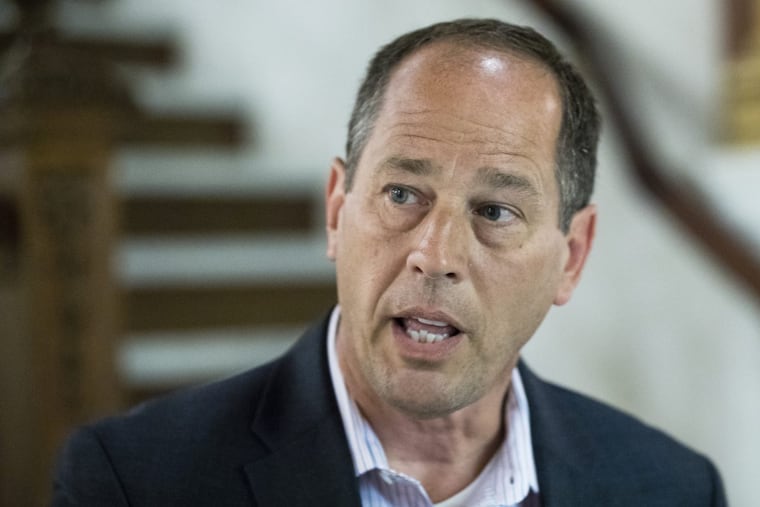Constitutional convention needed to end Pa.'s legislative paralysis
A constitutional convention for Pennsylvania could be messy, overly political, and bring out divisions on the left and the right. But that is called democracy.

Pennsylvania has a budget, but not enough money to pay for it. Gov. Wolf is acting like a bystander, not a player. Most members of the House and Senate have gone to the Shore or the mountains to rest up until after Labor Day. Who would have guessed that doing nothing could be so exhausting?
As one observer succinctly put it: "This isn't governing, this is an embarrassment." That person was Joe Scarnati (R., Jefferson), president pro tem of the state Senate.
The budget isn't the only example of government paralysis. Reapportionment, judicial reform, funding for schools, much-needed changes to our election laws — the list could go on. Legislative bodies aren't built for speed, but this is ridiculous.
It seems that way even to legislators. Frustrated by the annual torture of passing a budget, two Republicans – Sen. John Eichelberger of Blair County and Rep. Stephen Bloom of Cumberland County – are circulating a draft of a bill that calls for the convening of a constitutional convention to address the budget and other issues.
Such gatherings are rare. Only five have been held in the state's history – the first was in 1776 and the last was 1967. The last one had 163 delegates – 150 selected by voters in the state's 50 senate districts, plus 13 legislative leaders serving ex officio. They had the power to examine nearly every part of the state Constitution and change, delete, or amend any of them – if approved by a vote of the majority of delegates. Then the proposal was presented to the voters for final approval.
Do you advocate merit selection of judges? Clearer language about the state's obligation to fund public education? Changing outmoded language on absentee voting? Forbid the state to spend any money – including legislative pay – unless a state budget is passed with the money needed to fund it?
It could all be done at a constitutional convention. It is a powerful weapon of change. And like all such weapons, it can cut both ways. There is fear the hard-right would use the process to ban abortion, set limits on gay rights, and enact restrictive voter ID rules. The potential is there.
But there are tools available to steer the discussion. The enabling legislation, which also would be subject to voter approval, could exclude some areas from changes. In 1967, the constitutional amendment that requires all taxes to be uniform was excluded from debate.
Because delegates must stand for election by the voters, more community and civic leaders voters respect could get elected, as opposed to hacks. In 1967, author James Michener was elected a delegate. And many others were business and civic leaders in their local areas.
Convention officers who are well-respected are needed. Our nominees would be former governors Tom Ridge, a Republican, as chair and Ed Rendell, a Democrat, as vice chair. Their support for the final product would be crucial.
We freely admit a constitutional convention could messy, overly political, and bring out divisions on the left and the right. But that is called democracy. And we should not fear it.
Unless you prefer to wait another 50 years, a constitutional convention is the way to get reforms done now.